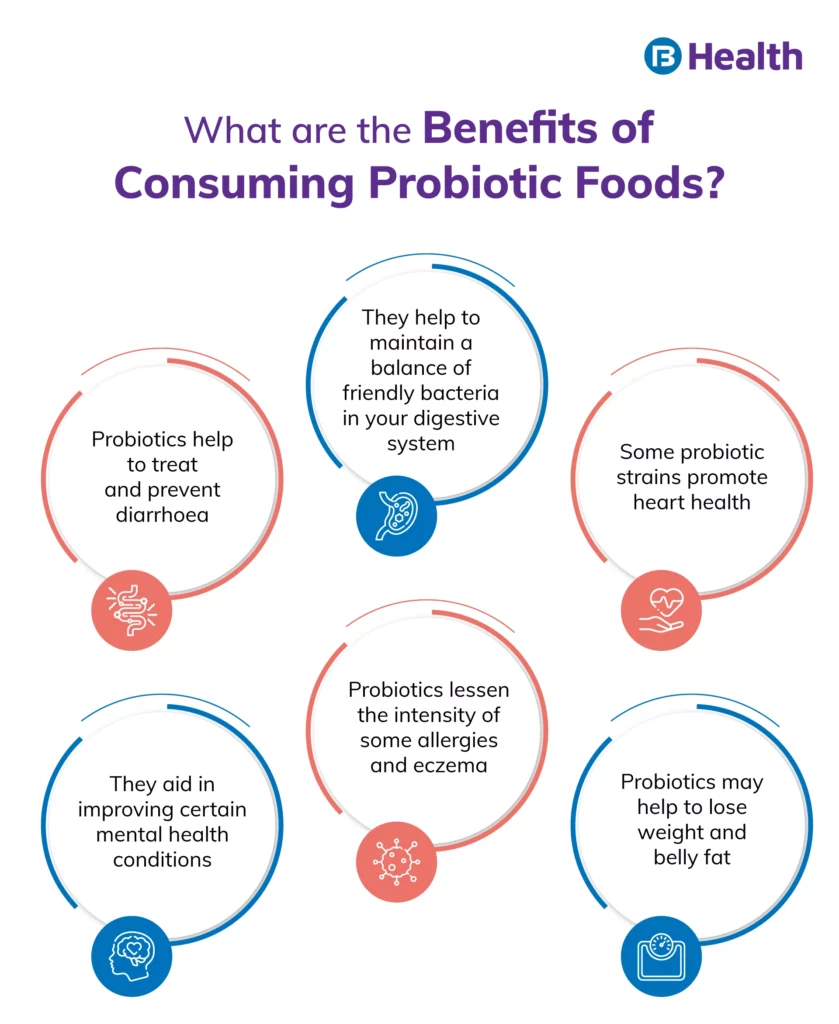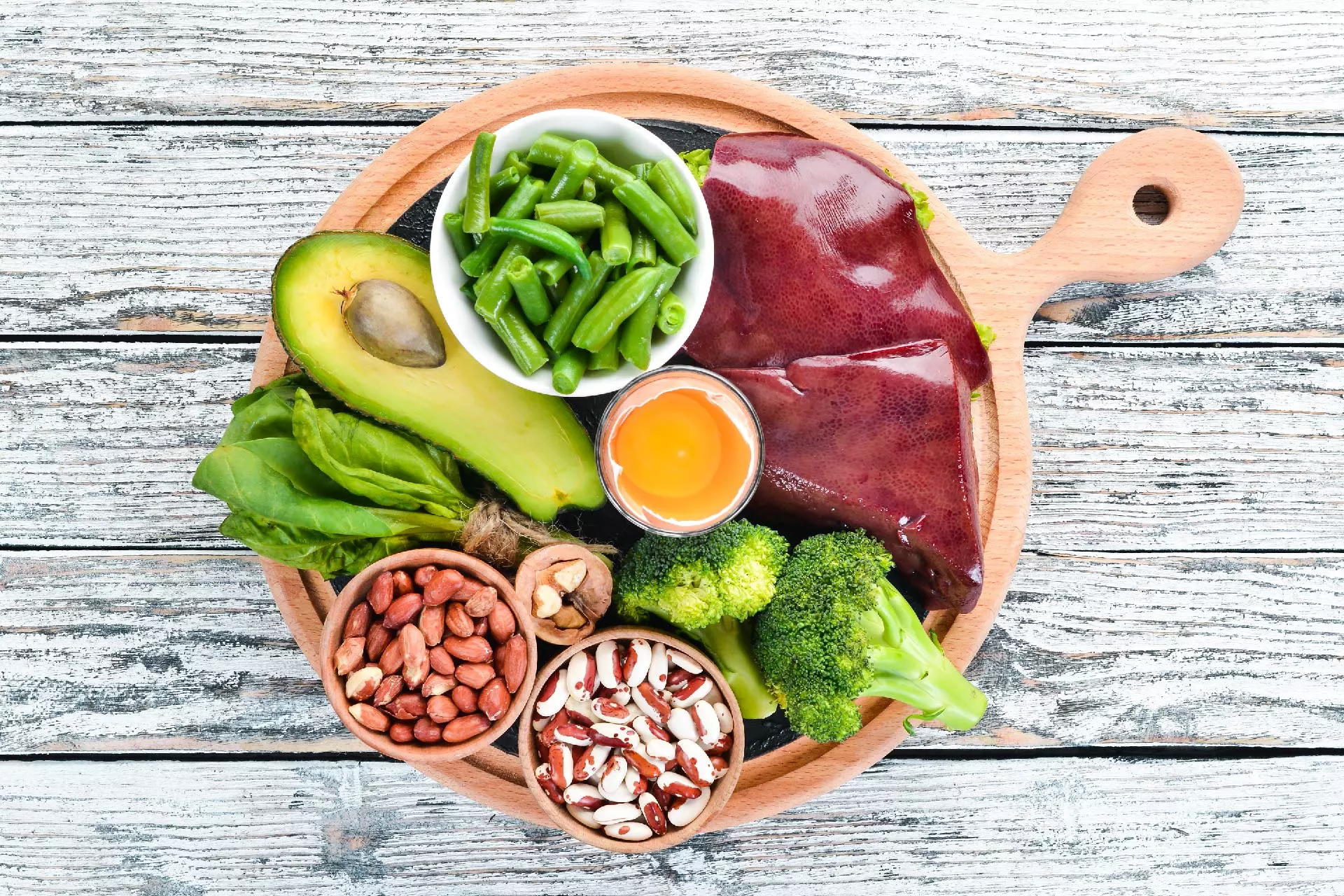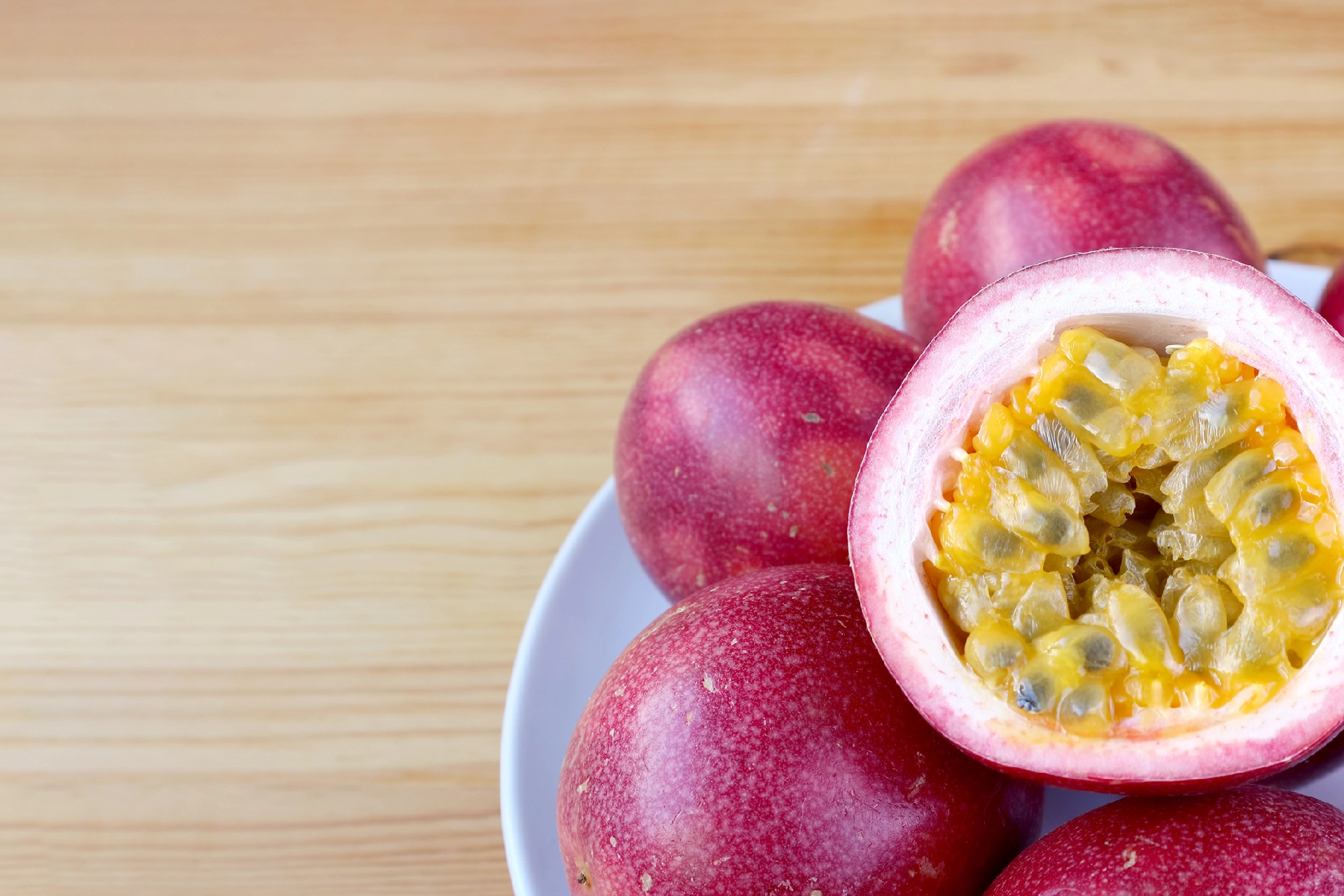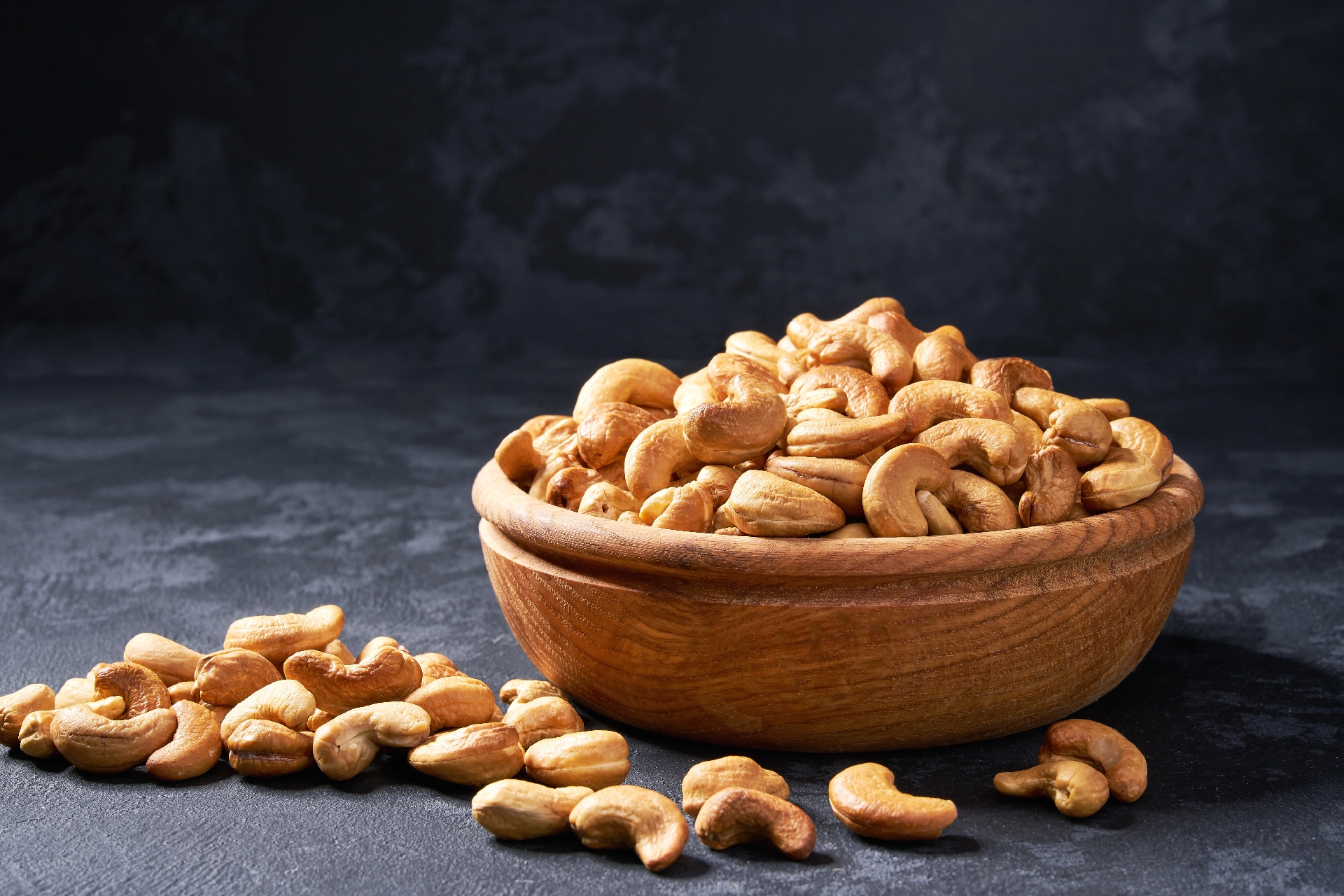General Physician | 8 min read
The Best 20 Probiotic-rich Foods That Are Super-Healthy!
Medically reviewed by
Table of Content
Synopsis
Probiotics are great for your body, and so many foods are loaded with them. When consumed in sufficient amounts, live bacteria or yeasts, known as probiotics, offer health advantages. However, deciding which probiotic-rich foods to include in your diet can be difficult.
Key Takeaways
- Probiotic foods have been shown to help improve digestion
- Eating the appropriate amount of probiotic foods will fuel your day and keep you fighting
- Probiotic foods also strengthen your immune system
We have listed the best highly beneficial top 20 probiotic foods list which will do wonders for your overall well-being:
Kefir
The first one on the probiotic food list is Kefir. This fermented dairy product, which is like probiotic yoghurt, is a special fusion of milk and fermented kefir grains. The phrase, which originates from Russia and Turkey, means "feeling well." It has been eaten for well over 3,000 years. It tastes somewhat tangy and acidic and includes 10 to 34 different probiotic bacteria.
It is comparable to yoghurt, but as it is fermented with yeast and more bacteria, the end product has more probiotics and is lower in lactose, which is suitable for lactose-intolerant people.
Sauerkraut
Finely shredded cabbage that has undergone lactic acid bacteria fermentation is known as sauerkraut, and it is one of the probiotic food. It is regarded as one of the oldest traditional dishes in many nations, notably in Eastern Europe. Sauerkraut is frequently served as a side dish or on top of sausages. It has a salty, sour flavour and may be kept for months if kept in an airtight container. In addition to having probiotic-rich food properties, sauerkraut is a good source of fibre and vitamins C and K.
It is an iron-rich food, and potassium is also present, while salt is in abundance. [1] Lutein and zeaxanthin, two antioxidants that are beneficial for eye health, are also found in sauerkraut. In modern Germany, sauerkraut is quite well-liked. It contains a lot of digestive enzymes and vitamin C. It's also an excellent source of naturally occurring lactobacillus, a kind of lactic acid bacteria. Choose unpasteurized sauerkraut wherever possible. Live and active germs are eliminated during pasteurization.
Additional Read: Iron-rich Foods
Kombucha
Using a SCOBY, commonly referred to as a symbiotic colony of bacteria and yeast, kombucha is an effervescent fermentation of black tea. Over 2,000 years ago, in or near Japan, kombucha first appeared. Although kombucha being a probiotic food, has been linked to various health advantages, its main ones include liver purification, improved energy, and support for the digestive system.
Coconut Kefir
The probiotic content of this alternative, which is made by fermenting young coconut juice with kefir grains, is often lower than that of the classic form. Nevertheless, it possesses numerous strains that are advantageous for your overall health. In addition, coconut kefir has a fantastic flavour, and you can prepare a tasty, refreshing probiotic drink by combining it with stevia, water, and lime juice.
Natto
Like tempeh and miso, natto is a fermented soybean product and is one of the best probiotic foods. It has a Bacillus subtilis bacterial strain in it. Japanese kitchens always have natto on hand. Usually, it is paired with rice and eaten for breakfast. It has a unique taste, slick texture, and flavour. Protein and vitamin K2, vital for bone and cardiovascular health, are abundant in natto. In a study of elderly Japanese males, frequent natto consumption was linked to better bone mineral density. Natto's high vitamin K2 level is to blame for this. According to research, natto may aid in preventing osteoporosis in women.
Yoghurt / Dahi
This probiotic food is one of the finest sources of a probiotic drinks. The good bacteria that can enhance your health is yoghurt. Probiotics, primarily lactic acid bacteria and bifidobacterial, ferment milk to create probiotic yoghurt. Its consumption is linked to several health advantages, including better bone health. High blood pressure sufferers might also benefit from it. Yoghurt may aid in reducing antibiotic-induced diarrhoea in youngsters. [2] It may even aid in reducing irritable bowel syndrome symptoms.
Yoghurt may also be good for those who cannot tolerate lactose. This is due to the bacteria converting lactose into lactic acid, which is also responsible for the flavour of yoghurt. Remember, not all yoghurt includes live probiotics. Additionally, always read the yoghurt label before purchasing. Even if it is advertised as reduced fat or fat-free, it might contain a lot of added sugar.
Idli and Dosa
Idli and Dosa are among the famous south Indian delicacies now available in India. They are also easy to prepare at home. It is made from fermented rice and urad dal, which creates probiotic microorganisms called carboxylic acid bacteria. These probiotic-rich foods also have high antioxidants and fibre. The side dishes that go with it are sambhar and chutney, which maintain the taste. These probiotic foods are rich in healthy bacteria that not only help in digestion but also are good for skin, weight loss and chances of stroke.
Kvass
Since ancient times, Eastern Europe has produced several fermented beverages using this potent ingredient. Traditionally, rye or barley was fermented to make it, but more recently, probiotic fruits, beets, and other root vegetables, like carrots, have been used to make it. Kvass, a probiotic drink with a little sour flavour and a reputation for purifying the blood and liver, employs Lactobacilli probiotics.
Indian Cottage Cheese/ Paneer
Paneer can be easily made from spoiled milk at home, or you can purchase it from the store. There is no need to process, heat or ferment the milk to get paneer. This creates a beneficial environment for the growth of probiotic bacteria. It is one of those probiotic foods that you can either consume raw or can consume it cooked.
Apple Cider Vinegar
Do probiotics come from apple cider vinegar? Apple cider vinegar can assist in increasing probiotic consumption, regulating blood pressure, lowering cholesterol, boosting insulin sensitivity, and even facilitating weight reduction. To get the best benefits, consume a tiny amount daily or use it as a salad dressing. When taken in the required amount, Apple cider vinegar is considered one of the best probiotic drinks.
Pickles
Adding pickles to your meal will help you in the longer run. You can buy from the store or use homemade. Homemade pickles are rich in enzymes. Experimenting with different vegetables such as carrots, radishes or mixed veggies for pickles, considered a probiotic food, will further add to the benefits of the pickles.
Brine-cured olives
Probiotics may be found in abundance in brine-cured olives. Pick an organic product first, just like with salted gherkin pickles. Next, ensure that your olives are not large; instead, try to choose a smaller one that promotes probiotics. Additionally, check to see whether your olives include sodium benzoate, a dietary ingredient that can counteract many of the health-enhancing qualities of this probiotic super food.
Tempeh
Tempeh is a well-liked meat alternative since it is strong in protein. The fermented soybean product is both a probiotic food and a magnesium-rich foodwith a high vitamin B12 content.
Additional read: Magnesium Rich FoodsMiso
Miso is a staple meal in Japan and is produced by fermenting soybeans with salt, koji, and other fungi. Miso soup frequently uses the paste, which is available in various flavours. Also, it is abundant in folic acid and vitamins B, E, and K. This soup is an excellent source of probiotic-rich food.
Soy sauce
Soy sauce may not always come under the probiotic food category, even if it is a fermented product unless it is marked as such on the label. Research, however, indicates that it and other fermented foods could also be advantageous for gastrointestinal health.
Traditional Buttermilk
Traditional buttermilk, also known as cultured buttermilk, is a fermented beverage created from the liquid that remains after butter is churned. It is widely consumed in Nepal and Pakistan and is regarded as one of the probabilistic drinks in India.
Water Kefir
By mixing grains with sugar water, water kefir is created. It is a fermented, effervescent beverage that is bursting with microorganisms. The water variety is among the best naturally occurring vegan probiotic foods that may be consumed as a component of a wholesome plant-based diet. In addition to being thinner than the standard form, it may be flavored with various herbs, fruits, and spices to make your unique mixture.
Raw Milk
Probiotic content is especially high in A2-aged cheeses, raw cow's, goat's, and sheep's milk, which makes it super probiotic food. Remember that all pasteurized dairy is devoid of beneficial bacteria, so if you want to obtain probiotics through probiotic drinks, you must limit your intake to just the highest-quality, raw dairy that hasn't been pasteurized.
Kimchi
Korean side dish kimchi is a fermented, hot meal and comes under the probiotic food category. Although cabbage is typically the primary component, other vegetables can also be used. Red chilli pepper flakes, garlic, ginger, scallions, and salt are just a few components used to flavor kimchi. It includes lactic acid bacteria, which may be advantageous to digestive health. Vitamin K, riboflavin (vitamin B2), and iron are among the vitamins and minerals that are abundant in cabbage-based kimchi. In addition, kimchi is considered one of the best potassium-rich foods.
Supplements
Probiotics are not just found in food. They are also available in the form of probiotic drinks, powder, tablet, and capsule form. Despite not offering the same nourishment as probiotic food can, these supplements are simple to utilize. Consult your doctor first if you believe they might benefit you. Probiotics may not be the best choice for you if you're sick or have immune system issues.
You can consume a lot of beneficial probiotic foods. This comprises a wide range of fermented soybean types, dairy products, and vegetables. Of those in our probiotic foods list, we have highlighted the best 20 probiotic-rich foods in this blog, although there are many more.
You may also take a probiotic supplement if you cannot consume any of these meals. Probiotic supplements are available for purchase online. Before using any new supplement, contact a doctor from Bajaj Finserv Health to talk to general physician and get a consultation from the doctor. Your health may benefit from probiotics, which may be found in food and pills.
References
- https://fdc.nal.usda.gov/fdc-app.html#/food-details/1103568/nutrients
- https://pubmed.ncbi.nlm.nih.gov/25588782/
Disclaimer
Please note that this article is solely meant for informational purposes and Bajaj Finserv Health Limited (“BFHL”) does not shoulder any responsibility of the views/advice/information expressed/given by the writer/reviewer/originator. This article should not be considered as a substitute for any medical advice, diagnosis or treatment. Always consult with your trusted physician/qualified healthcare professional to evaluate your medical condition. The above article has been reviewed by a qualified doctor and BFHL is not responsible for any damages for any information or services provided by any third party.





